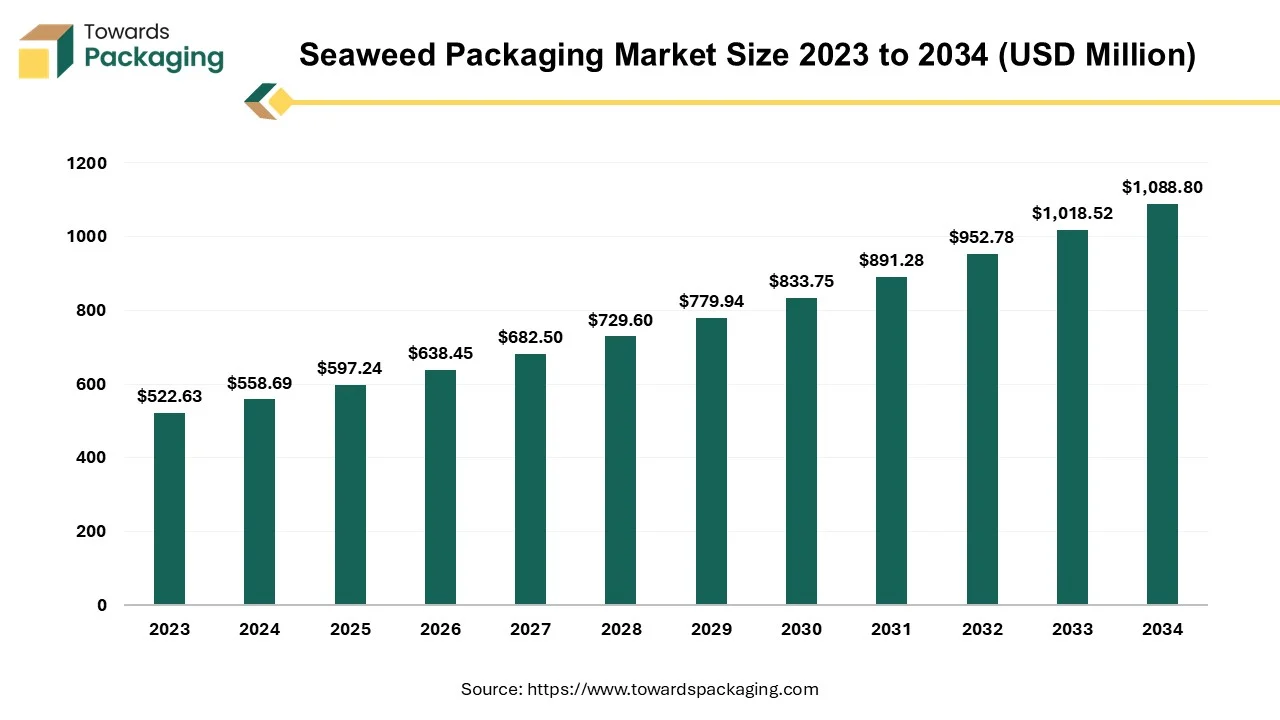In the ongoing battle to combat the detrimental effects of synthetic agrochemicals and plastic waste, governments worldwide are making significant strides toward developing eco-friendly solutions. Among the most promising alternatives is seaweed, a natural resource that is gaining momentum for its potential to revolutionize both agrochemicals and packaging industries. With innovative initiatives spearheaded by governments and research institutions, the seaweed revolution is reshaping how we approach sustainability.
The Rise of Seaweed in Sustainable Packaging
A groundbreaking collaboration between Melbourne’s Victoria University and China has led to the development of seaweed-based plastic alternatives, marking a significant milestone in sustainable packaging. Launched in November 2022, this initiative leverages China’s dominance in seaweed production, as the country accounts for approximately 78% of the world’s total output. The partnership focuses on utilizing seaweed as a raw material to create eco-friendly polymer products, reducing reliance on petroleum-based plastics.
Dedicated seaweed farms have been established on China’s Shandong Peninsula, specifically for polymer production, underlining the scale and commitment to this initiative. The innovation behind this project lies in harnessing the natural properties of seaweed, which can be transformed into biodegradable plastics that decompose without leaving harmful residues, unlike conventional plastic packaging.
The shift to seaweed-based packaging offers a promising solution to the global plastic waste crisis, which continues to pose a significant environmental threat. By integrating seaweed into packaging, this partnership aims to reduce the ecological footprint of plastic products while promoting the cultivation of a sustainable resource.
The seaweed packaging market, which is expected to grow from USD 597.24 million in 2024, is anticipated to see strong growth through 2034. With a compound annual growth rate (CAGR) of 6.9%, the market is projected to reach USD 1,088.8 million by 2034, driven by the increasing demand for eco-friendly and biodegradable packaging solutions. As more businesses and consumers seek alternatives to traditional plastic, seaweed-based packaging presents an attractive, sustainable option that aligns with the growing trend toward environmental consciousness.

Get All the Details in Our Solution – Download Brochure: https://www.towardspackaging.com/download-brochure/5073
EU4Algae: A European Commitment to Seaweed
Not to be outdone, the European Commission (EC) has also demonstrated leadership in supporting seaweed as a sustainable alternative in packaging and nutrition. In February 2022, the EC launched the EU4Algae initiative, a platform aimed at accelerating the commercialization of algae-based solutions across Europe. This platform brings together stakeholders from various industries to promote the widespread use of seaweed in packaging, food, and nutrition.
The EU4Algae project’s primary goal is to raise consumer awareness about the many benefits of seaweed, including its sustainability and versatility. By encouraging the adoption of algae-based packaging solutions, the European Commission aims to reduce the environmental impact of plastic and other non-biodegradable materials. This strategic initiative also aligns with Europe’s broader environmental goals, such as reducing carbon emissions and supporting circular economies.
Through EU4Algae, the EC is not only advocating for sustainable packaging alternatives but also creating a market for seaweed-based products, thus fostering innovation in the algae industry. By bringing together researchers, businesses, and policymakers, this initiative sets the stage for a future where seaweed plays a central role in sustainable packaging and agrochemicals.
Government Support for Bio-Based Agrochemicals
The potential of seaweed extends beyond packaging, offering significant opportunities in the field of bio-based agrochemicals. As the global demand for eco-friendly farming solutions increases, governments are supporting the development of bio-based alternatives to synthetic agrochemicals. Seaweed, rich in natural nutrients, can be utilized to create bio-based fertilizers and pest control products, offering a safer, more sustainable alternative to traditional chemicals.
Governments worldwide are recognizing the importance of supporting research and development in this area. By providing incentives and fostering collaboration between industry and academia, they aim to accelerate the adoption of bio-based agrochemicals, which can reduce environmental pollution and improve soil health. Seaweed’s ability to provide a sustainable and natural solution is gaining traction, with the potential to transform the agricultural sector.
Invest in Our Premium Strategic Solution: https://www.towardspackaging.com/price/5073
Get the latest insights on packaging industry segmentation with our Annual Membership – https://www.towardspackaging.com/get-an-annual-membership
If you have any questions, please feel free to contact us at sales@towardspackaging.com
Browse our Brand-New Journal:
https://www.towardshealthcare.com
https://www.towardsautomotive.com
For Latest Update Follow Us: https://www.linkedin.com/company/towards-packaging/
Get Our Freshly Printed Chronicle: https://www.packagingwebwire.com/